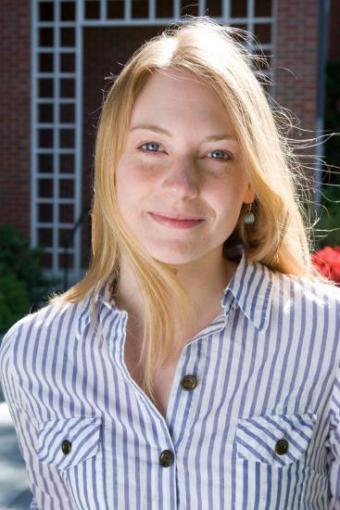The Swedish 20th century poet, Tomas Tranströmer, once wrote a poem called To Friends behind a Frontier. In this poem, Tranströmer writes about a message, a message that he sends his friends who are stuck on the other side of a troubled border.
The poem begins like this:
I wrote so meagerly to you. But what I didn’t write
swelled and swelled like an old-fashioned airship
and drifted away at last through the night sky.
It’s a beautiful image, isn’t it? This airship; this giant, floating, silent Zeppelin disappearing into the darkness, crossing the border into the unknown on the other side. Carrying a message from a friend to another, as a gesture of reconciliation and understanding, as a bridge over the embattled frontier that separates them.
Four years ago, I, a Swedish girl living in France, crossed the border into the United States. What lay beyond that border was almost completely unknown to me, as dark as the night sky into which the poem’s airship disappears.
And of course, that wasn’t the only border crossed back in September 2004.
We all crossed, from high school to university. From home life to campus life. From “Do this! Do that!” to “You want to do this? Make it happen!”
Among those of us gathered here today, we can probably count a million other crossings: from the West Coast to the East Coast. From that tiny school with a graduating class of twenty, to Brown and our 1,500 new classmates. And these crossings must have seemed as daunting to you as my crossing seemed to me that day, when I stood waiting in the Immigration line at Boston’s Logan Airport.
And daunting as it is already, it’s not quite that simple, is it? We never just cross from one country to the next. Rarely, if ever, do we leave the things we have known behind. Rather, we accumulate countries as we go along. We live with our borders inside us, constantly. We negotiate them the best we can.
And this is what Tranströmer’s airship represents: our urge to mediate those borders, to get across, forcing us to communicate. Here at Brown, I chose to concentrate Literary Translation for this very reason: I translate, in an effort to merge my Swedish, French and American worlds. I translate Swedish songs and poems so that my friends here in the States can understand them. So that they can understand me.
We all have our different ways of translating, of negotiating our borders. There’s my friend Doug, who’s been translating the behaviour of bats into new insights about echolocation. And there’s my friend Victoria, who’s been spending her senior year in the List art building, translating the life of her family in Brussels onto canvas.
Translation, to me, is simply that: the effort to create understanding across borders. To put our words, our thoughts and songs into a language that the people on the other side can understand, whether that language be poetry, music, a scientific article – or maybe simply the gesture of a hand. And, even more importantly: to take what others say and do and ponder it, look at it from all angles, find the nuances until we can understand them.
It’s not an easy task. Tranströmer laments the fact that “he wrote so meagerly.” No matter how much we translate, or how well, something is always lost along the way.
Which is why it is so easy to simply want to stay, with our feet firmly and unambiguously planted on our own familiar ground, and not cross any borders, not try to understand what the person opposite us is saying, which might sound strange, stupid, even offensive or hostile to us. I’ve certainly been there. I arrived in the United States a year and a half after the invasion of Iraq and feelings were running high. Constructive debate had given way to shouting matches, in the UN Security Council, as well as in the dorm rooms of this campus. And I, culture-shocked and homesick, stumbled at this border. I had plenty to say about the U.S., its politics, its people – and it wasn’t all constructive criticism.
Now, you might find that the snide remarks of a homesick teenager seem trivial in the face of the global violence this conflict has created. But my refusal to translate what I said, and what others said to me, into a common understanding nonetheless played its tiny part in undermining the dialogue we so badly needed.
Tranströmer wrote To Friends behind a Frontier during the Cold War. The frontier he speaks of is not metaphorical. There was a concrete wall running through the heart of Europe then, and there are walls springing up between people all over the world even now. These walls are not metaphorical.
But they begin in our minds. They begin in the borders we refuse to negotiate within ourselves, the understandings we never arrived at, the conversations we left in impatience or anger. It is the walls in our minds that can become walls in the real world.
At Brown, we’ve learned to translate. To take the words of an opponent or the actions of a friend and think deeply about them before coming to judgment. We’ve learned patience. Empathy. The ability to sometimes hold our tongues and open our ears.
You were my friends behind the frontier. Today, we cross another border, all of us together. A border we’ve both feared and looked forward to. Beyond it, we will face new crossings to negotiate. The future might seem as murky and unknowable as a night sky, but I have no doubt that we will all play important parts in it. And when we do, let us not forget our lessons of translation.
So: felicitations, gratulerar, congratulations class of 2008!

